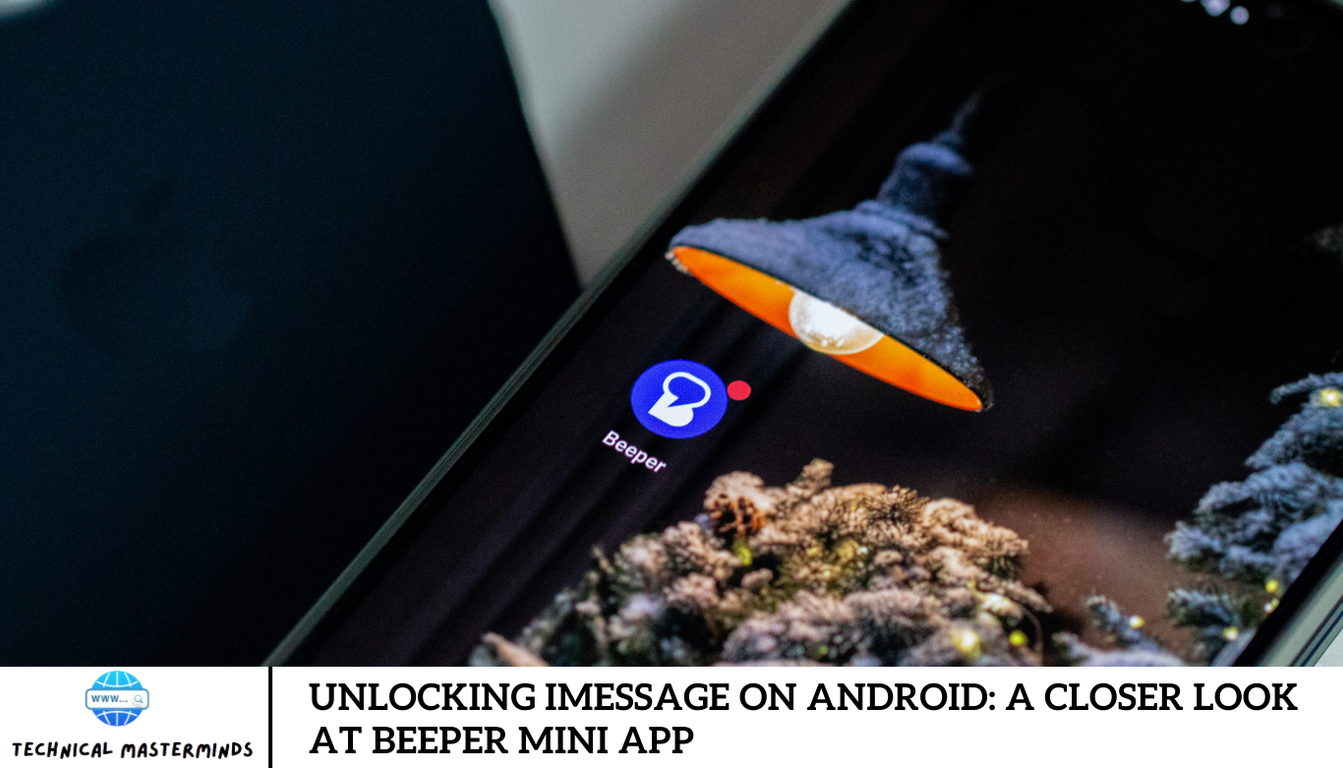Does iMessage Notify When Someone Takes a Screenshot? iMessage, Apple’s proprietary messaging platform, offers a range of features that make communication convenient and secure for its users. One question that often arises is whether iMessage is the right choice. Unlike apps such as Snapchat, which does notify users when a screenshot is captured, iMessage does not send any such notification. This means that if someone takes a screenshot of a conversation or media shared through iMessage, the other person will not be alerted.
This lack of notification has raised privacy concerns, as users may need to be made aware when others save their messages or photos. While Apple places significant emphasis on privacy and security through end-to-end encryption for iMessage, the platform leaves it to users to manage the ethical aspects of their interactions. Users need to be mindful of their conversations and consider that anything shared could potentially be saved or shared without their knowledge. For individuals who prioritize control over their shared content, it might be worth exploring other messaging platforms that provide more transparency around screenshot activity.
Read Also: How to Fix Some Account Services Require You to Sign In Again
Does iMessage Alert You When a Screenshot Is Taken
No, iMessage does not alert users when a screenshot of their messages or media is taken. Unlike some messaging apps that notify users when someone captures a screenshot, iMessage does not have this feature. This means that if you receive a message or photo through iMessage, you won’t be notified if the other person takes a screenshot of your conversation.
Apple prioritizes privacy through end-to-end encryption, ensuring that your messages are secure from external access. However, the platform does not include notifications for screenshots, leaving users to manage their privacy and be mindful of what they share.
The Privacy Implications of Not Receiving Screenshot Alerts on iMessage
The absence of screenshot alerts on iMessage has significant privacy implications for users. Here are some key points to consider:
- Unawareness of Content Capture: This means that sensitive or personal information shared through iMessage could be saved or shared without the sender’s knowledge.
- Potential for Misuse: Without notifications, there is a risk that screenshots could be used maliciously. For instance, screenshots of private conversations or sensitive images could be shared with others or misused, potentially leading to privacy breaches or reputational harm.
- Lack of Control: Users’ inability to know when a screenshot is taken means they have less control over how their shared content is handled. This could lead to concerns about trust and the security of personal information.
- Ethical Considerations: The absence of alerts places ethical responsibility on users to act with integrity when handling digital content. Individuals need to be mindful of their interactions and respect others’ privacy.
- Comparative Privacy: Other messaging apps, like Snapchat, offer screenshot notifications, providing users with a level of transparency about their content. The lack of this feature in iMessage highlights the difference in privacy practices between platforms.
While iMessage’s end-to-end encryption provides a strong level of security, the absence of screenshot alerts emphasizes the importance of users remaining cautious and responsible in their digital communication.
Best Practices for Protecting Your Privacy on iMessage
To protect your privacy on iMessage, consider adopting the following best practices:
- Be Mindful of What You Share. Only share sensitive or personal information if you trust the recipient. Once shared, content could potentially be captured or misused.
- Use Strong Passwords: Ensure your Apple ID is secured with a robust and unique password.
- Enable Two-Factor Authentication: To enhance your security, enable two-factor authentication (2FA) for your Apple ID. This adds an extra layer of protection by requiring a second verification step, so even if someone obtains your password, they cannot access your account without this additional verification.
- Review and Manage Your Contacts: Regularly review your contacts and remove any that you no longer communicate with or trust.
- Use Privacy Settings: Customize your iMessage settings to enhance privacy. For example, you can adjust who can send you messages and who can see your “Last Seen” status.
- Avoid Sharing Screenshots or Forwarding Messages: Be cautious about forwarding messages or sharing screenshots, as this can inadvertently share private content with unintended recipients.
- Keep Software Up to Date: Ensure that your iOS and iMessage apps are constantly updated to the latest version.
- Monitor Device Access: Remove any devices that you no longer use or recognize.
- Educate Yourself About Phishing and Scams: Be cautious of messages from unknown contacts or suspicious links, as these could be attempts to gain access to your personal information.
- Consider Alternative Communication Tools: For compassionate conversations, consider using messaging apps with additional privacy features, such as notifications for screenshots.
By following these practices, you can enhance your privacy and security while using iMessage.
The Role of Trust and Ethics in Digital Communication
Trust and ethics play a vital role in shaping responsible behavior in digital communication. As technology enables instant sharing of information and media, these two principles form the foundation for respectful and secure interactions online. Here’s how trust and ethics influence digital communication:
- Building Trust in Digital Spaces
In digital communication, trust is essential for fostering open, honest, and effective interactions. People often share personal or sensitive information through platforms like iMessage, social media, or email, trusting that the recipient will handle it appropriately. This trust allows for the free exchange of ideas and deeper connections in both personal and professional relationships.
When trust is violated, such as through unauthorized sharing of private content, it can lead to emotional distress, reputational damage, and a breakdown in relationships. In the absence of physical cues, maintaining trust requires clear communication, transparency, and respect for others’ privacy.
- Ethical Responsibility in Digital Communication
Ethics guide how individuals should act in online spaces, emphasizing the importance of respect, privacy, and accountability. Ethical behavior involves:
- Respecting Privacy: Even without notifications, it is unethical to take or share screenshots of private conversations without consent.
- Avoiding Harm: Misusing digital tools, such as spreading false information or sharing sensitive content without permission, violates ethical standards and can cause harm.
- Promoting Integrity: Digital communicators should act with integrity by being honest and not deceiving or manipulating others.
- Navigating Anonymity and Accountability
In digital interactions, anonymity can blur ethical lines, allowing individuals to act without the usual social consequences. Trust and ethics help navigate this space, ensuring individuals remain accountable for their actions, even when online.
Frequently Asked Questions
Are there any settings in iMessage to control or restrict screenshots?
iMessage does not offer settings to control or restrict screenshots.
What should I do if I’m concerned about someone taking screenshots of our conversations?
Be mindful of what you share and consider discussing privacy concerns directly with the person you’re communicating with.
Do iMessage notifications appear if someone takes a screenshot on an iPhone?
No, iMessage does not send notifications regardless of the device being used.
Are there other messaging apps that notify users when a screenshot is taken?
Yes, some apps like Snapchat provide notifications when a screenshot is captured.
How can I protect my privacy on iMessage if there are no screenshot notifications?
Use strong passwords, enable two-factor authentication, be cautious about the content you share, and regularly review your privacy settings.
Conclusion
iMessage does not provide notifications when someone takes a screenshot of their messages or media. This absence of screenshot notifications means that users must remain vigilant and cautious about the content they share. While iMessage offers robust privacy through end-to-end encryption, the lack of screenshot alerts underscores the importance of exercising discretion and trust in digital communications. Users should be mindful of their interactions, knowing that any shared content could potentially be captured and misused. For those seeking additional transparency around screenshot activity, exploring alternative messaging platforms with built-in notification features might be beneficial.

